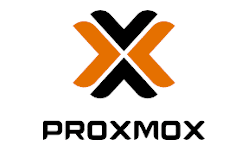This release also includes essential updates and performance enhancements, making it a milestone in open-source server virtualisation management.
Proxmox Server Solutions GmbH has officially launched Proxmox Virtual Environment version 8.1 (Proxmox VE 8.1), marking a significant milestone in the realm of open-source server virtualisation management platforms. This latest release introduces a plethora of new features, including support for Secure Boot, a robust Software-defined Network (SDN) stack, a flexible notification system, and a host of performance-enhancing updates and bug fixes.
It boasts a newer Linux kernel version 6.5 as its stable default, providing users with enhanced stability and performance. It also includes updates to essential open-source technologies, such as QEMU 8.1.2 and LXC 5.0.2. Additionally, ZFS 2.2.0, featuring crucial bug fixes from 2.2.1, is now integrated into the platform. Proxmox VE 8.1 extends support for Ceph Reef 18.2.0 while continuing to support Ceph Quincy 17.2.7, offering users the flexibility to choose their preferred Ceph version during installation.
Key Highlights of Proxmox Virtual Environment 8.1:
- Support for Secure Boot: Proxmox VE 8.1 is now fully compatible with Secure Boot, bolstering system security by ensuring that only digitally signed software can run on the machine. The inclusion of a signed shim bootloader trusted by most UEFI implementations allows for seamless installation in environments with Secure Boot enabled.
- Software-defined Network (SDN): This release comes equipped with core SDN packages, empowering users to create virtual zones and networks (VNets). SDN in Proxmox VE facilitates the management and control of complex networking configurations and multitenancy setups directly from the web interface. It enables versatile use cases, from isolated private networks on individual nodes to intricate overlay networks across multiple Proxmox VE clusters, offering a responsive and scalable network infrastructure.
- New Flexible Notification System: Proxmox VE 8.1 introduces a sophisticated notification framework that leverages a matcher-based approach for routing notifications. Users can designate various target types as recipients, including Gotify servers or SMTP servers requiring authentication. Notification matchers allow for precise control over when, where, and how notifications are sent, enhancing flexibility and customization.
- Support for Ceph Reef and Ceph Quincy: Users can now benefit from support for Ceph Reef 18.2.0 alongside continued support for Ceph Quincy 17.2.7. The selection of the preferred Ceph version is possible during the installation process, with Ceph Reef delivering improved defaults, enhanced performance, and faster reading speeds.
It is readily available for download on the official Proxmox website. The ISO image contains the complete feature set and can be installed on bare-metal servers. It offers a user-friendly web-based interface for easy host management, making it accessible through both the command line and standard web browsers. Existing users can seamlessly upgrade from previous versions via apt, and it’s also possible to install Proxmox VE 8.1 on top of Debian. It is distributed under the GNU Affero General Public License, v3, making it free and open-source software. For enterprise users seeking comprehensive support, Proxmox Server Solutions GmbH offers subscription-based support models starting at EUR 105 per year per CPU, providing access to the extensively tested Enterprise Repository and technical support.
















































































